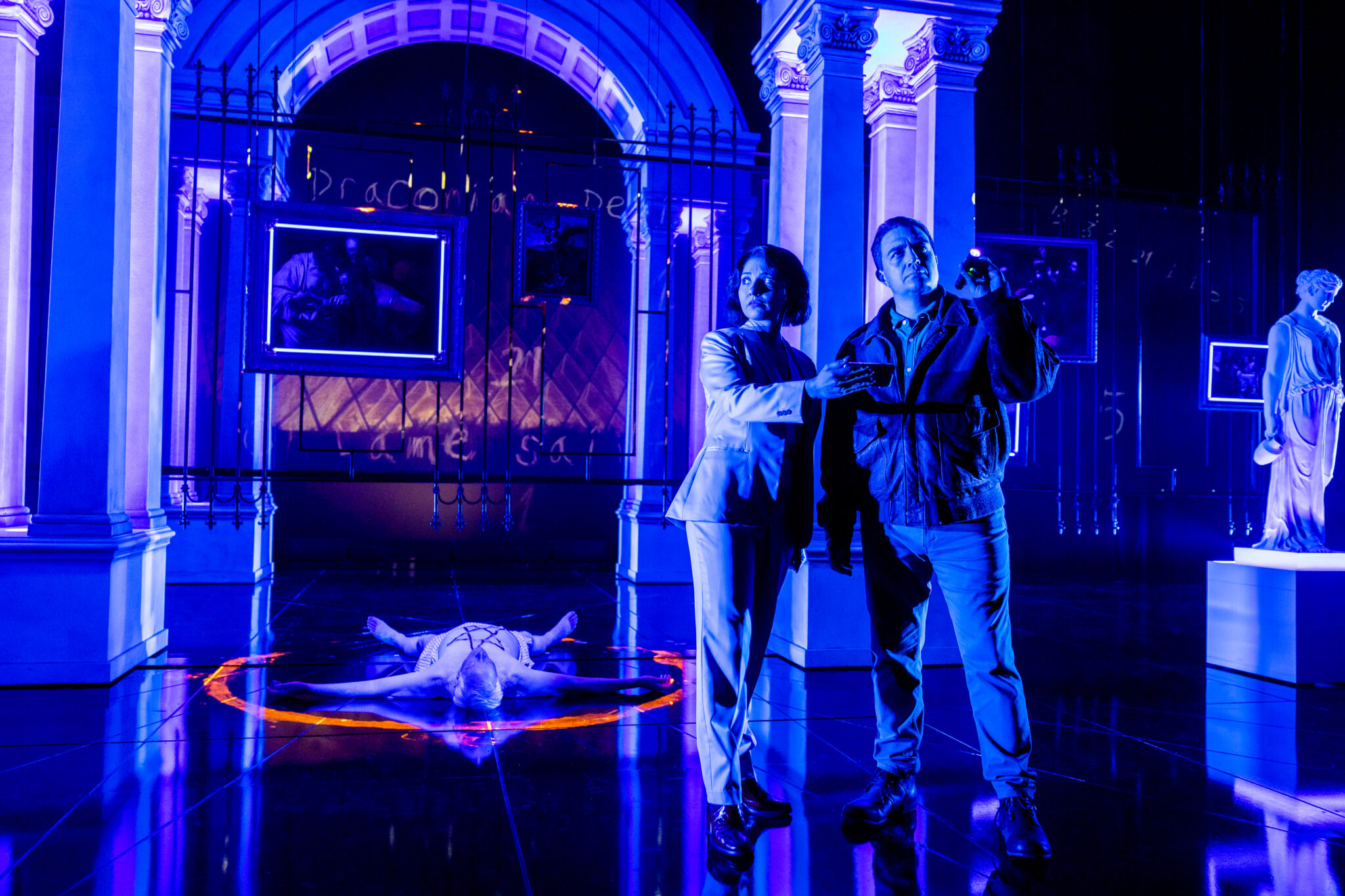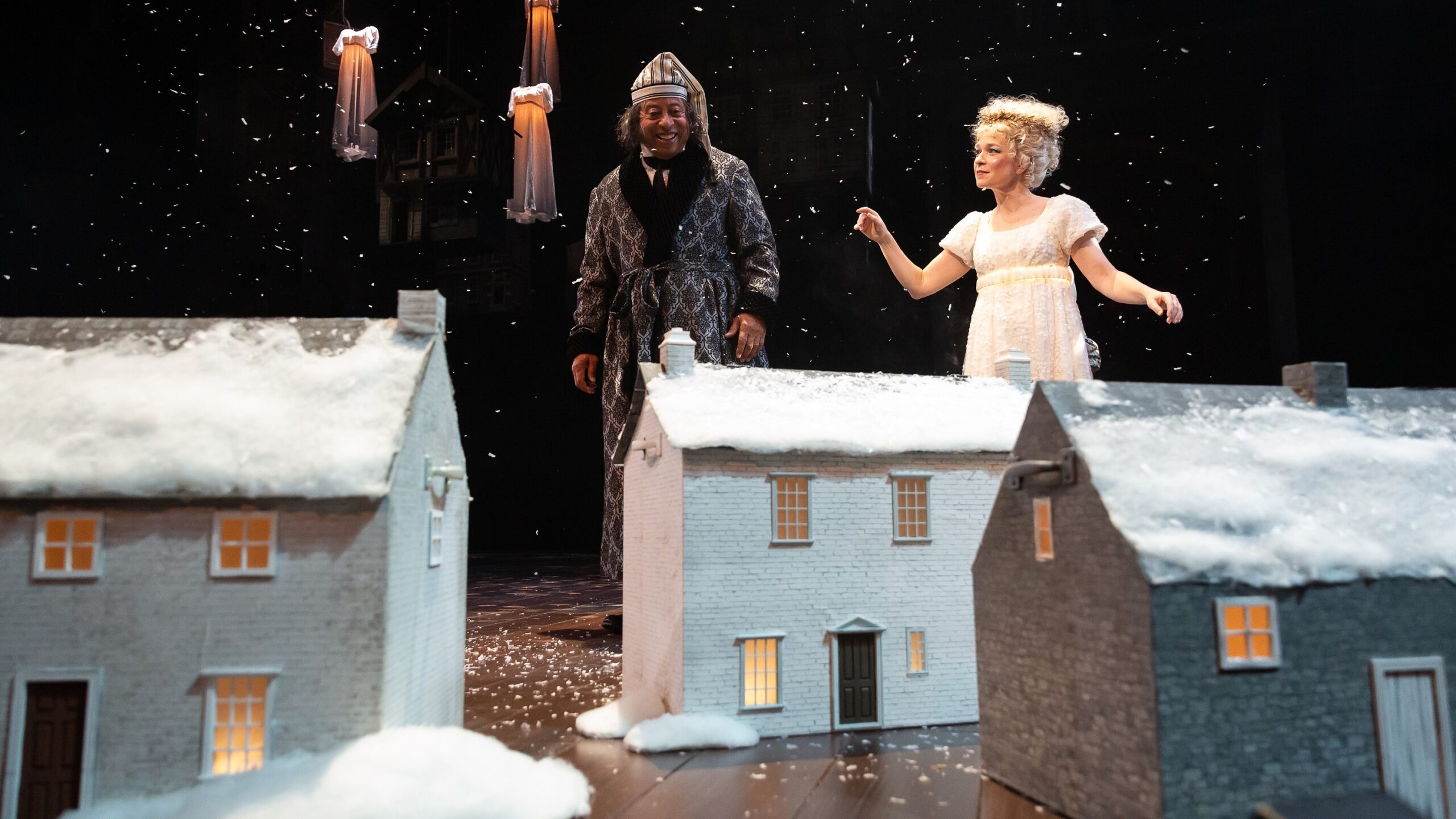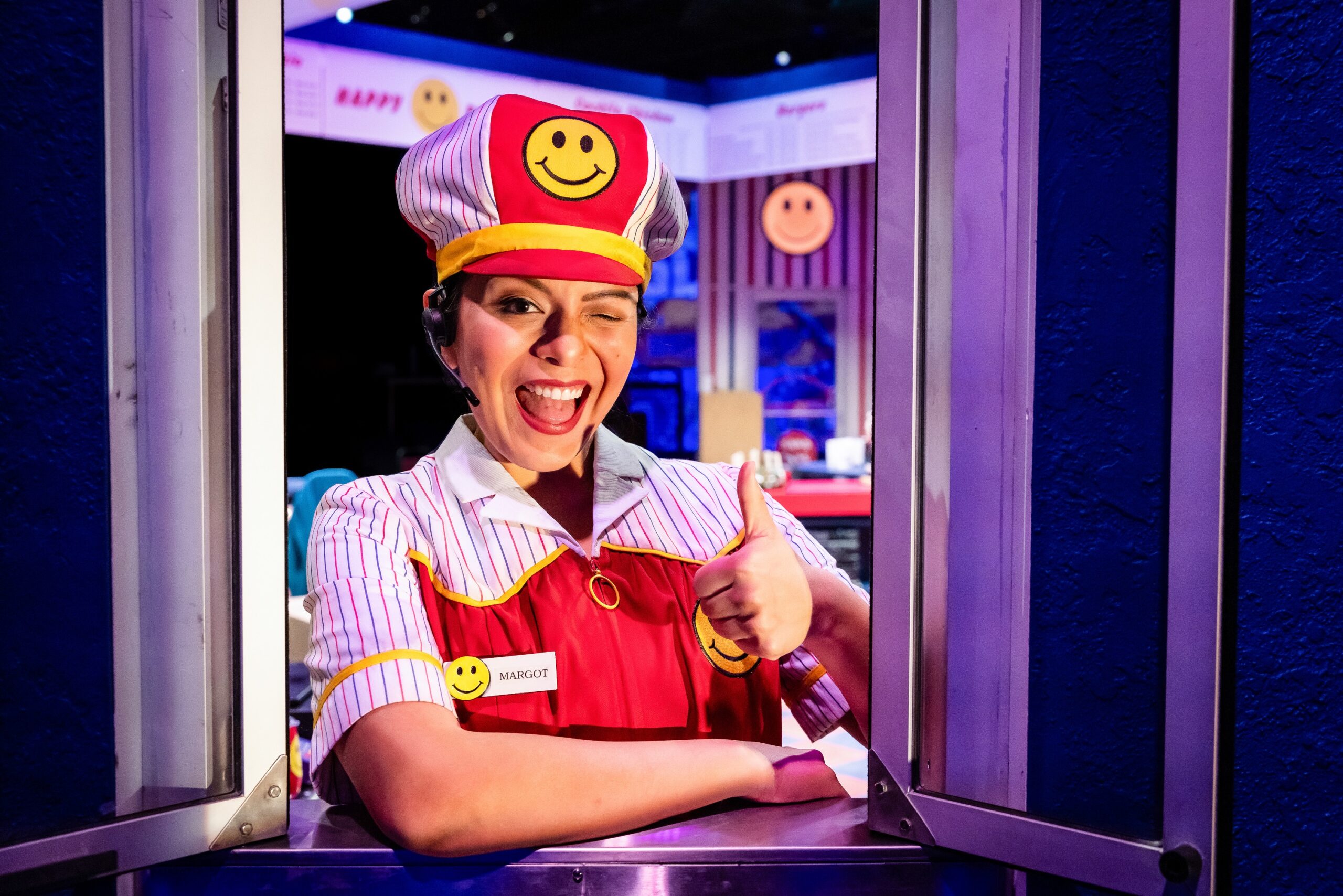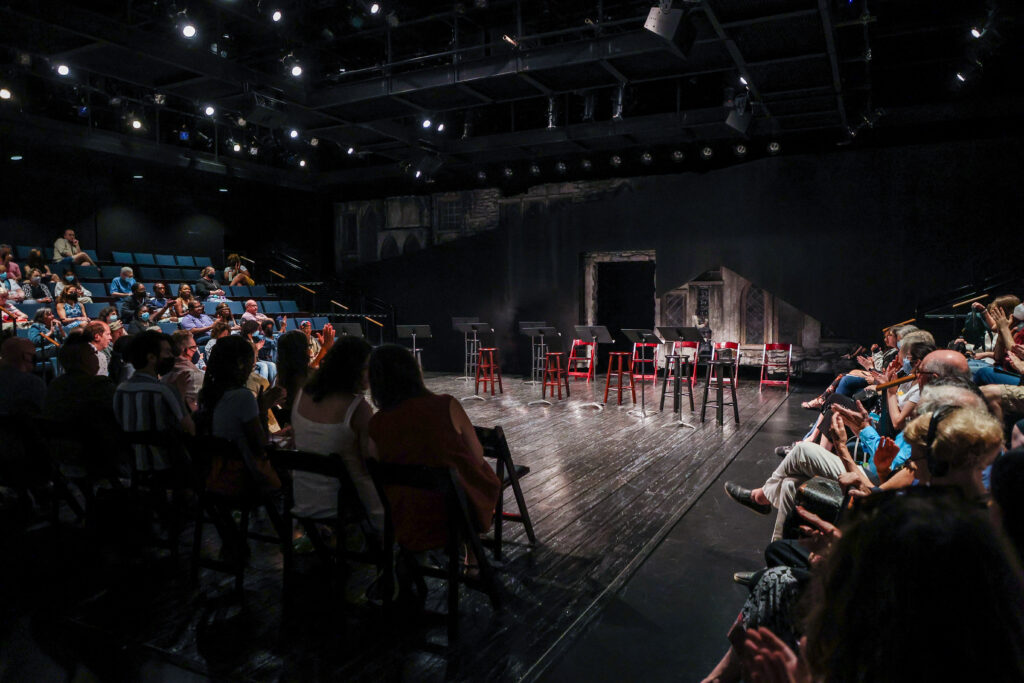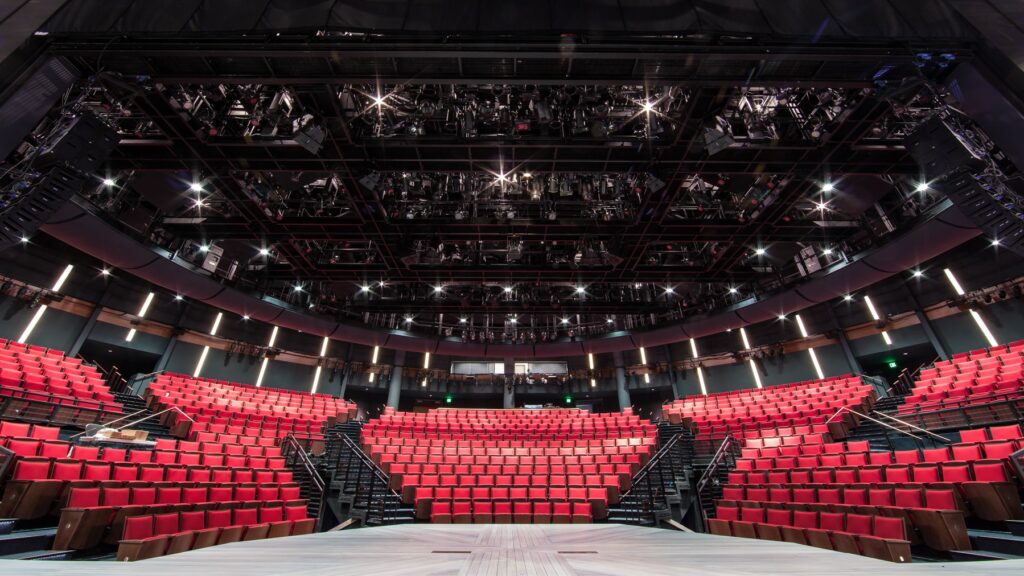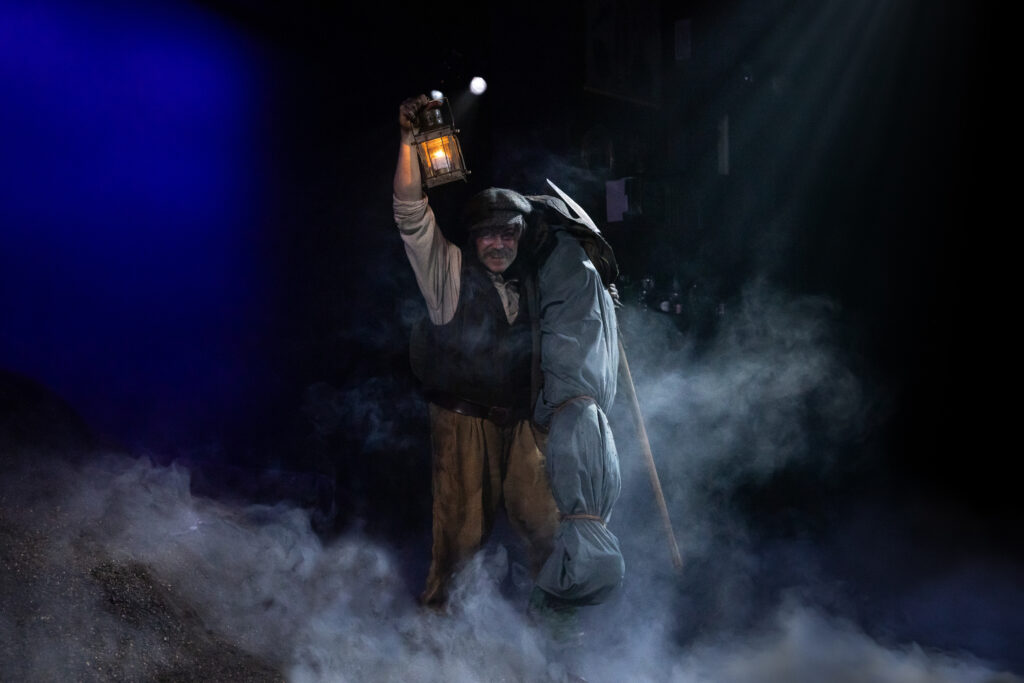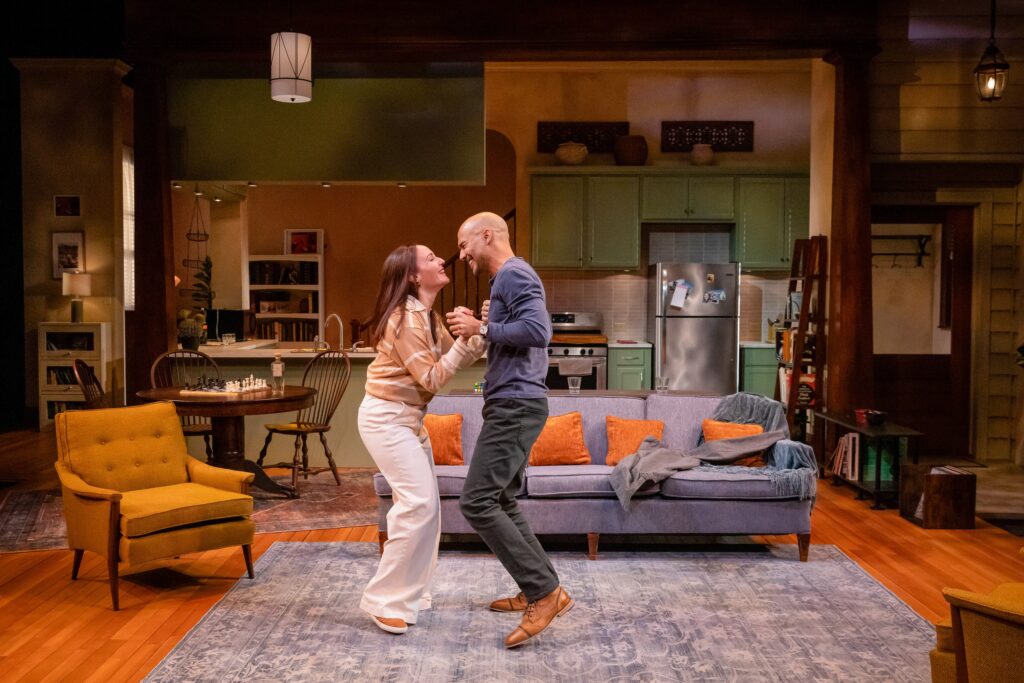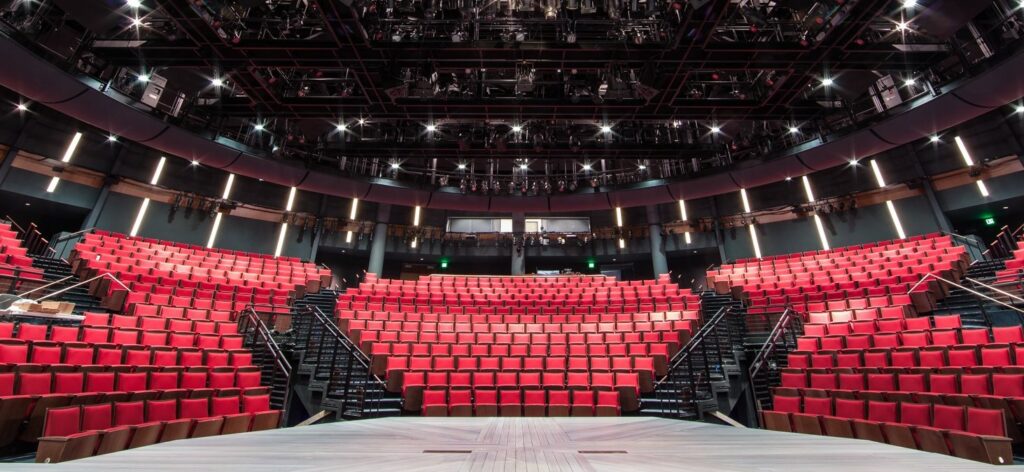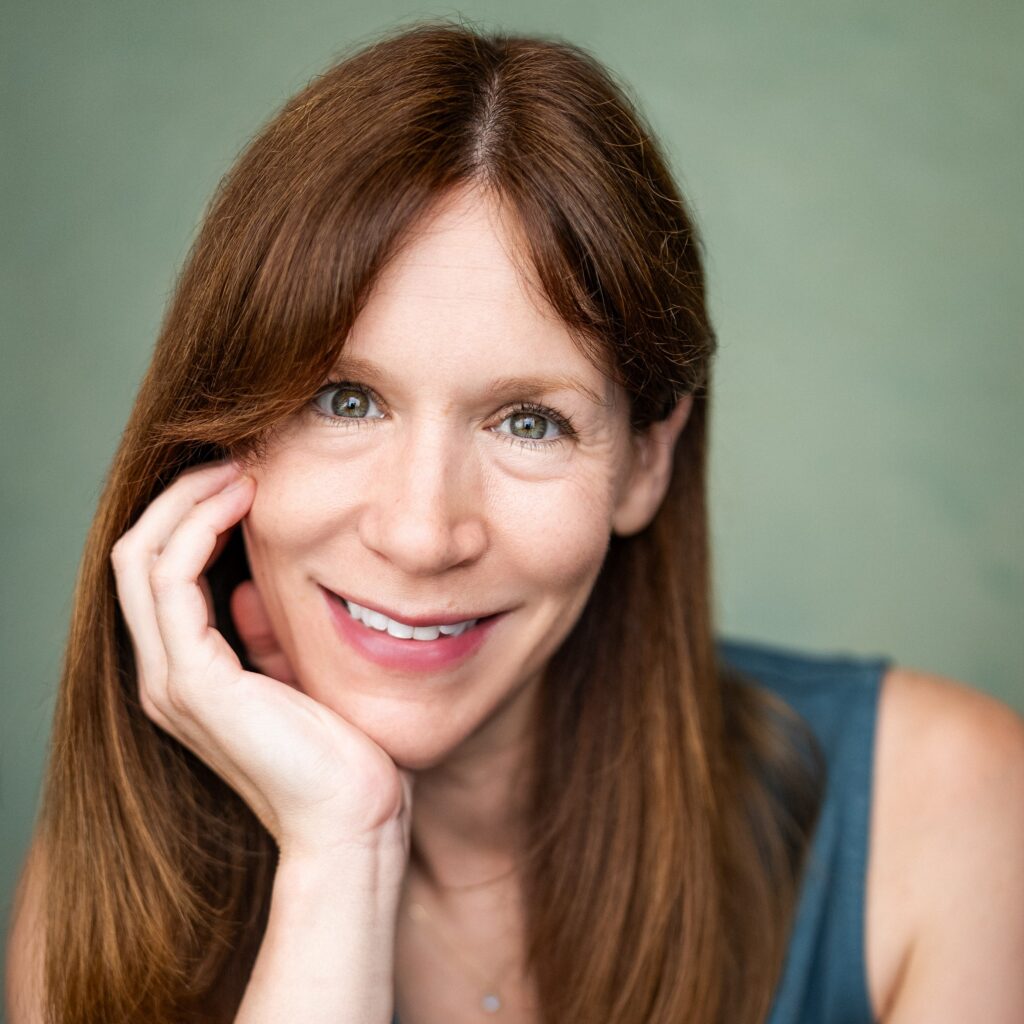
By Makaylee Secrest
Since its publication in 2003, Dan Brown’s The Da Vinci Code has sparked global fascination. The bestselling mystery-thriller follows symbologist Robert Langdon and cryptologist Sophie Neveu as they unravel secrets hidden within art, religion, and history following a murder in the Louvre. Tapping into conspiracies involving secret societies and coded messages buried in famous artworks, the novel blurred the line between fact and fiction in ways that captivated millions of readers worldwide. With over 80 million copies sold and translations in 44 languages, The Da Vinci Code became a cultural phenomenon that has continued to evolve across media.
In 2006, Ron Howard’s film adaptation brought the story to the big screen, with Tom Hanks stepping into the role of Langdon. The film was a box office juggernaut, grossing over $760 million worldwide and cementing The Da Vinci Code as a modern franchise. In 2022, writers Rachel Wagstaff and Duncan Abel reimagined Brown’s globe-trotting thriller for the stage, premiering at the Churchill Theatre in London before embarking on a UK tour.
In the interview below, Wagstaff reflects on her experience co-adapting such an intricate, fast-paced mystery for live performance and what it means to bring the beloved story to a new audience.
Can you share how the opportunity to adapt The Da Vinci Code for the stage first came about?
Duncan Abel, my co-writer, and I had adapted The Girl on the Train, which is a bestselling British literary thriller, and audiences really responded to it. At the end of the run, the producer said to me: “let’s talk about your dream project. If you could do anything next, what would it be?” I gave him a shy smile and admitted, “well, I’ve always wanted to adapt The Da Vinci Code…” He smiled back at me and said, “interestingly, I’ve just inquired about the rights!” Duncan and I then wrote a treatment for Dan Brown, including a sample of the script, with directorial input from Luke Sheppard for how a production might work. Dan Brown read our treatment and it went from there.
What was your reaction when you got the official go-ahead to adapt The Da Vinci Code?
We were thrilled, although apprehensive too because it’s the best-selling novel in the world, isn’t it? So while we were really excited by the thought of bringing it to the stage, of course we were also hugely daunted at taking on such a global phenomenon. When we began in earnest, we forbade ourselves from thinking about how big it was and just got immersed in it as a work of art, as a story to create anew for the stage.
Why do you think The Da Vinci Code is so popular?
It’s the only book I’ve ever read where I actually missed my stop on the underground [subway] because I couldn’t stop turning the pages! I think it’s so compelling and addictive. You’re just desperate to know what happens next. But it’s also fascinating and there’s such a wonderful mixture of so many interesting elements too: the way it delves into art, into history and into the power of symbols, for example. But it’s also about grief, forgiveness and love. Perhaps it’s simpler to say it’s about the world and why we exist as humans, and what could be more interesting than that?
Can you walk us through your process for adapting a novel into a stage play?
I usually begin by reading the book several times, underlining my favorite lines and moments, and making copious notes. If I’m co-adapting with Duncan, then he does the same, and only when we both know the book inside out do we compare notes. We usually then start together by breaking the story down into the order of events – i.e. we make a plot outline – and then we do character studies, talk about the themes, make a note of any moment or line that we simply have to include, and explore how to make the book work best as a piece of theatre. This might include a theatrical language, set pieces, or simply how something might look onstage. Eventually, when we’re absolutely certain of the best way to break it into scenes, then we might finally start allowing ourselves to write a first draft of the opening scene. I try to not let myself have that really nice part – the actual writing – until I’ve done all the groundwork. The way you can’t eat dessert until you’ve had some vegetables! But with adapting, it’s different every time, depending on the project itself. And with this one, it’s probably the most complicated, intricate book I’ve taken on so far, so I had to read it at least three times and make endless notes to myself before even beginning a conversation about it with Duncan! Once we have a finished script, we then revise it extensively between ourselves before sharing with the producer and director and, in this case, with Dan Brown too. Dan has given us terrific feedback on drafts of the scripts; in fact, he has been so incredibly gracious and supportive throughout and we could not be more grateful to him.
What challenges did you run into when distilling such a complex narrative into a clear, engaging theatrical experience?
The main challenge we faced was that the story moves between so many different locations in the book. This is easier if you’re doing a film adaptation but if you’re writing a play, you typically don’t want to have 100 scenes because the story, the heart of the show, dies a little bit each time the location changes, particularly if the lights go down and come back up again. You want it to be as fluid as possible. So our challenge was to elide the scenes into as few locations as possible while still getting the really thrilling, epic story that Dan Brown has created. We really wanted to create fuller, character-driven scenes for a play, rather than constantly skip from location to location, so this meant simplifying and distilling on occasion, while also trying to maintain the pace of Dan’s glorious thriller!
Did you use the movie version as a reference or avoid it?
I deliberately didn’t watch it and pretended that it didn’t exist, so I wasn’t influenced by it in any way, whereas Duncan preferred to watch it to know what was there so we could make different choices. I think that worked pretty well, the pair of us coming from differing viewpoints.
What drew you to adapting literature for the stage?
I grew up loving books. Books were always the thing that helped me understand the world. My brother died when I was almost 10 and my family were very British and didn’t talk about it so I read children’s books about grief, endlessly. I loved Anne of Green Gables, for example, and Matilda and The BFG and Danny The Champion of the World. It helped me so much, reading books about other children who had lost loved ones. I always knew I had to work with books, I just didn’t know how. And then I fell in love with theatre when I was at university. I directed a few plays, and I began to have this crazy thought that wouldn’t it be amazing if I could turn books I love into plays?!
How does theatre uniquely serve the story of The Da Vinci Code compared to other formats?
I think there’s something really special about being at a live event with real human beings in front of you, conjuring a story before your eyes in a room full of unconnected strangers who sit there in the dark next to each other in the shared experience. It’s really wonderful reading about the symbols and codes and paintings as described in the book, and using your imagination (or Google!) to picture them. But when the story is created onstage, the whole audience can see those codes or symbols brought to life in front of them. Theatre can draw on old-fashioned storytelling but also combine it with the most exciting, innovative modern technology so that lights, sound, music, underscore all combine to create an incredibly visceral experience where numbers can be conjured and rearranged in the air, a painting can evolve in projection, and a symbol can appear as if by magic, in the most beautiful and exciting ways!

